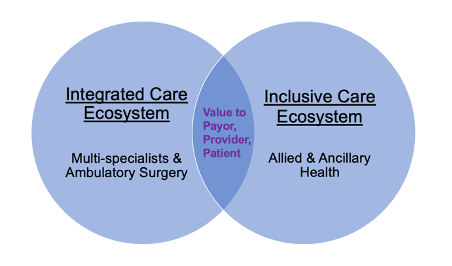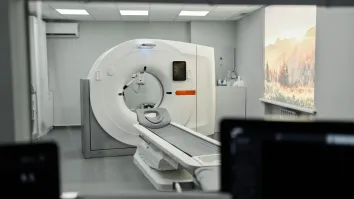Evolving the Healthcare landscape in Singapore with Integrated Ambulatory Surgical Centres
By Julian HongAs the healthcare needs in Singapore continue to evolve, it is essential to address the challenges posed by the rising demand for medical services and the shifting demographics of the population. Traditionally, the focus of healthcare delivery in South East Asia has been on tertiary hospitals. However, with the emergence of a super-aged population, where 21% of the population is above the age of 65, the healthcare system is being tested in terms of quality, access, and affordability.
In February 2024, Singapore’s health minister shared in parliament that patients are now moving from 85% public, 15% private to 90% public,10% private, signalling a greater leaning towards affordability despite potentially longer waiting times; as cited in 2018 that median wait times for new subsidised specialist appointments are at 22 days.
In response to these challenges, integrated ambulatory surgical centres have emerged as a potential solution to transform the healthcare landscape in Singapore.
Reimagining care: Integrating Specialist care with Ambulatory surgery in the community
With the wait time for elective surgery in public hospitals taking more than a week, and new specialist outpatient appointment median wait time at 22 days, an integrated ambulatory surgery centre was conceived as a solution to this challenge.
These centres aim to bring quality healthcare closer to the community by offering a wide range of specialties, including obstetrics and gynaecology, paediatrics, general and colorectal surgery, plastic surgery, ophthalmology, orthopaedics, urology, vascular surgery, hernia, and endocrine surgery. By providing a comprehensive range of services, these centres cater to the needs of the local population, especially in areas where nearest hospitals are more than 5km away .
In addition to specialist care, integrated ambulatory surgery centres also incorporate allied and ancillary health services such as lactation and postpartum support, counselling, and traditional Chinese medicine. This holistic approach not only improves the patient experience but also addresses the emotional and psychological well-being of individuals, creating a continuum of care that extends beyond the surgical procedure itself.

Michael Porter had described value in healthcare as the “balance between outcomes that matter to patients and the cost to achieve those outcomes” By overlaying these 2 ecosystems, and a healthcare facility built around the patient with 7 principles of universal design, the X, which forms the overlap between integrated and inclusive care delivers value for Patients, Payors, and Providers (3P).
Ambulatory Surgery and its Advancements
The push for value by patients and payor continue to be a main driving force in where patients eventually seek treatment. In the 1970s, a similar trend was observed in the US where 50% of all surgeries were eventually performed outpatient. Appropriate patient selection backed by research, uncompromising on patient safety and a focus on patient satisfaction have given equivalent or better outcomes to patients than inpatient surgery.
Ambulatory surgery, also known as outpatient surgery, has gained significance in recent years due to its clinical and technological advancements. This form of surgery allows patients to undergo procedures and return home on the same day, leading to shorter hospital stays and faster recovery times. The concept of Enhanced Recovery After Surgery (ERAS) has played a crucial role in advancing ambulatory surgery. By implementing various protocols such as antimicrobial prophylaxis, postoperative nausea and vomiting prophylaxis, early ambulation, and opioid-sparing analgesia, ERAS has improved patient outcomes, reduced complications, and enhanced the overall patient experience.
Value based care complimentary to ambulatory surgery
Value-based care, which focuses on achieving the best outcomes for patients at an optimal cost, aligns well with the concept of ambulatory surgery. Research has shown that appropriately selected patients who undergo ambulatory surgery experience significant cost savings and superior 30-day outcomes compared to inpatient surgery. By avoiding unnecessary hospital admissions, ambulatory surgery reduces healthcare costs without compromising on the quality of care. This cost-efficiency makes specialised medical care more accessible and affordable, especially when combined with corporate insurances, integrated shield plans, and the usage of Medisave, a savings scheme in Singapore.
By combining ambulatory surgery with specialist care in a community setting, these integrated ambulatory centres improve access to quality healthcare while ensuring affordability. The further integration of allied and ancillary health services and the implementation of value-based care principles also enhance the patient experience and outcomes.
The future of care holds exciting possibilities as healthcare leaders drive change, challenge the status quo, and evolve the healthcare system to meet the evolving needs of patients.


















 Advertise
Advertise







